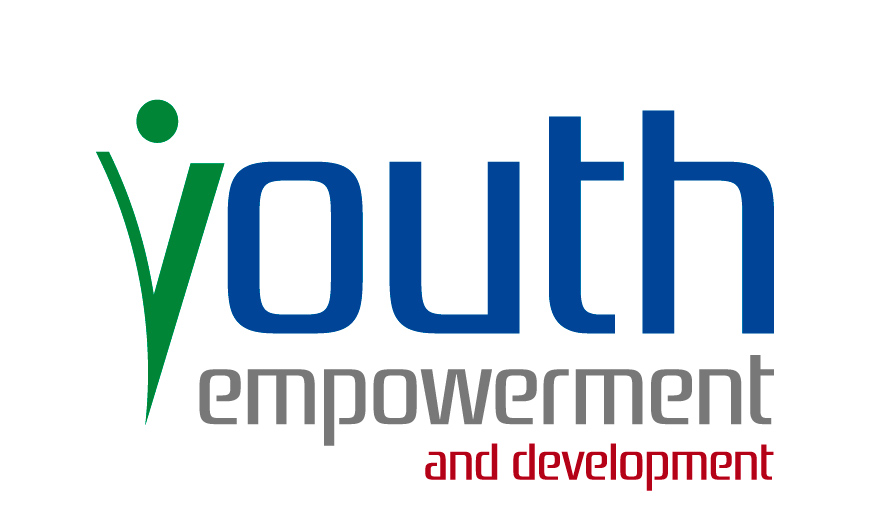YOUTH EMPOWERMENT AND DEVELOPMENT (YED) DEFINED
PROMOTION OF YOUTH PARTICIPATION IN SOCIO AND ECONOMIC GROWTH FOR OPTIMUM DEVELOPMENT
High youth unemployment negatively impacts economic growth and productivity and that cannot be ignored. There is a risk of loss of talent and skills since a great amount of university graduates are unable to find a job and put their knowledge and capabilities into producing innovation and contributing to economic growth. Furthermore, having a large share of the young workforce unemployed, not only leads to reduced productivity and gross domestic product (GDP), but it also increases the economic costs for the country, since there is a need for more money to be paid out on social grants and less money coming in from taxes.
Youth Empowerment and Development projects promote youth participation in socio and economic growth for their optimum development as an individual and a member of society. The objective of this model is to address youth unemployment through creation of temporary jobs and skills development opportunities, which intends to increase chances of youth employability and/or progression to entrepreneurship. It encompasses a broad array of interventions which enable young people to participate not
only in personal and skills development, but also in the mainstream economic development by gaining access to new opportunities for employment and income generation, while contributing to the reconstruction of South Africa. They promote creation of pathways through experiential training, community services and further education and training as well as exit opportunities.
YED prioritises and targets young women, youth with disabilities, unemployed youth, out of school youth, youth in rural areas, youth at risk, youth heading households, youth in conflict with the law, youth abusing dependency – creating substances and youth being subjected to all forms of abuse in line with ‘not in education, employment, or training’ (NEET) youth category.
STRATEGIC OBJECTIVES
Creation of temporary employment for youth. | Upskilling of young people. | Workplace experience training. | Promotion of SMME development.
YOUTH GRADUATE PROJECTS
SUB-SECTOR
Youth graduate projects form part of the YED sub-programmes and entail the involvement of unemployed young people in activities and interventions that provide an environmental service benefitting communities, while they are also provided with an opportunity to acquire work experience as well as to develop their skills.

These projects are implemented through DFFE partnership with various stakeholders such as municipalities, public entities, institutions of higher learning, NGOs, community-based organisations (CBOs), co-operatives, other government departments, traditional authorities and other relevant stakeholders. These stakeholders are earmarked for hosting project participants ensuring capacity building and experiential learning while providing services to their communities or host institutions based on their environmental challenges.
Sub-categories for youth graduate projects are as follows:
- Youth environmental services.
- Climate change ambassadors.
- Forestry monitors.
- River rangers.
- Waste campaigners.
- Field rangers/ field ranger assistance.
- Coastal and marine management monitors.
- Occupational health and safety (OHS) compliance officers.
EXIT TRAINING AND SKILLS DEVELOPMENT
SUB-SECTOR
Exit training and skills development projects are formed through partnerships between the department and stakeholders such as municipalities and Department of Higher Education Quality Assurance Bodies (SETAs and QCTO).

These are projects whereby most of the project time is spent on accredited training and the associated practical component as well as workplace experience. Training is characterised by a large intake of participants for each project, where they undergo the same course and/or a combination of skills programmes that results in the acquisition of a competency certificate upon completion.

Exit training and skill development projects aim to provide long-term based and comprehensive skills required by the labour market with a specific bias towards young people to match needs of employers within the province and municipalities. These projects are sourced in line with the EP SOP from both internal and external stakeholders, a process that requires submission of project funding application for DFFE consideration and approval.
The call for projects' application within DFFE scope and priorities are communicated and published through DFFE website. The service providers are then appointed following appropriate DFFE tender processes for contracting and implementation of YED projects. Training categories involve short skills programmes and occupational qualifications that last for a duration of up to 36 months.




